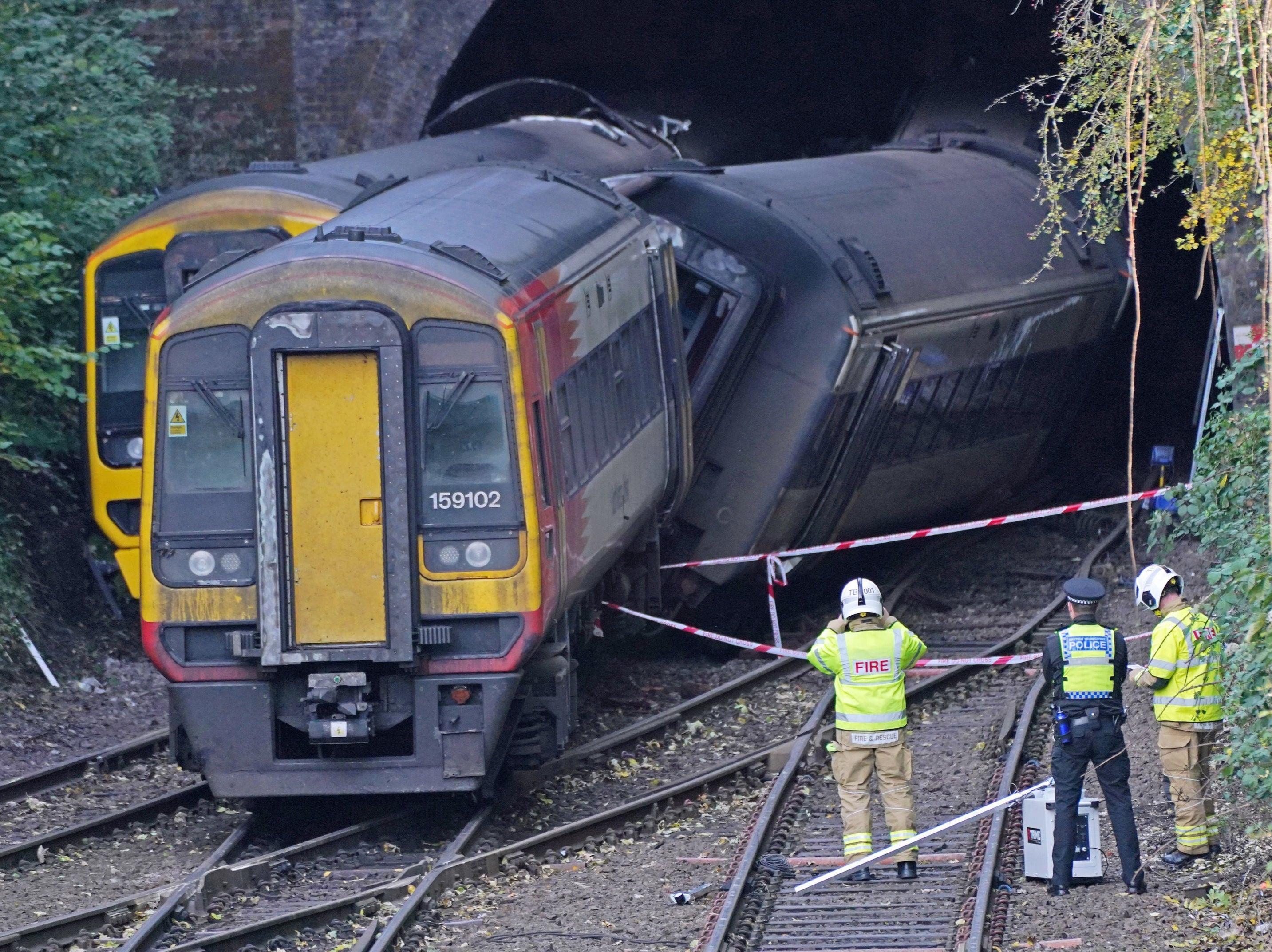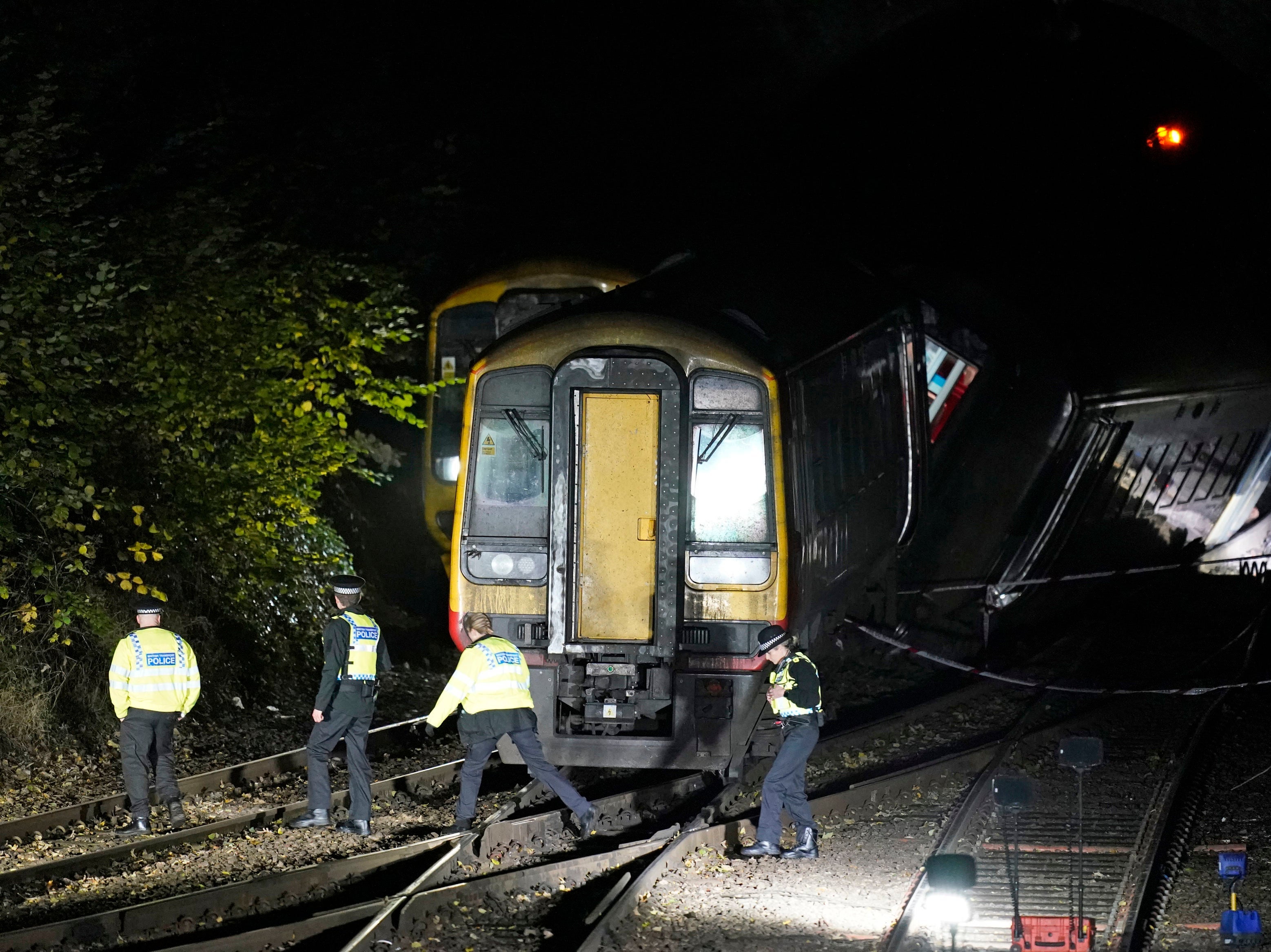Salisbury train driver ‘saved lives’ with quick-thinking as service ran 220 metres past stop signal
Robin Tandy, 74, hailed a ‘hero’ by colleague after suffering life-changing injuries in crash

Your support helps us to tell the story
From reproductive rights to climate change to Big Tech, The Independent is on the ground when the story is developing. Whether it's investigating the financials of Elon Musk's pro-Trump PAC or producing our latest documentary, 'The A Word', which shines a light on the American women fighting for reproductive rights, we know how important it is to parse out the facts from the messaging.
At such a critical moment in US history, we need reporters on the ground. Your donation allows us to keep sending journalists to speak to both sides of the story.
The Independent is trusted by Americans across the entire political spectrum. And unlike many other quality news outlets, we choose not to lock Americans out of our reporting and analysis with paywalls. We believe quality journalism should be available to everyone, paid for by those who can afford it.
Your support makes all the difference.The train driver left with life-changing injuries following Sunday’s rail collision in Salisbury saved the lives of those on board with his quick thinking, a colleague has said.
Robin Tandy, 74, reportedly had just six seconds to react and apply the emergency brakes before his train collided with another service just outside a tunnel.
The veteran driver applied the brakes before reaching a stop signal but, despite his efforts, the South Western Railway train ran 220 metres past the signal and smashed into the side of a Great Western Railway service, an initial investigation suggests.
The Rail Accident Investigation Branch (RAIB) said in a preliminary report the SWR train failed to stop due to its wheels slipping on the rails.
The trains were travelling in the same direction but on separate tracks as they approached the Y-shaped junction outside Fisherton Tunnel carrying a total of 92 passengers on Sunday.
They collided at the point where the tracks merge at about 6.45pm.
Both trains derailed and ran alongside each other into the tunnel.
Mr Tandy’s decades of experience are thought to have saved the lives of everyone on board and prevented dozens of injuries.
The driver is said to have thrown himself to one side of his cab during the crash. He later had to be cut out and was airlifted to hospital with life-changing injuries, police said.
Thirteen passengers were also treated in hospital for minor injuries.
Kevin Regan hailed his friend and colleague of 30 years as a “hero”.
He told the Daily Mail: “He must have only had about six seconds to react and fling the brakes into emergency.
“He’s the hero of the hour, that’s for sure, and at a personal cost to himself because he’s suffered serious injuries.”

Mr Regan said his friend, who began working on the railways at the age of 15 and became a driver in the 1970s, was likely the most experienced driver on the SWR network, “if not the country”.
As part of its inquiry, the RAIB will examine how Network Rail managed the risk of “low wheel/rail adhesion” where the accident happened.
It will also consider Network Rail and SWR’s general policies towards the issue.
Praising Mr Tandy’s “impeccable” actions, a SWR spokesman said the RAIB’s initial findings showed the driver “reacted correctly to the signals by braking”.
“He is a deeply respected colleague, who has over 50 years’ experience of driving on this route and an excellent professional track record,” the spokesman added.
“All our drivers are regularly assessed to the highest standards and he has fully satisfied all requirements.

“Initial findings indicate that the driver acted in an impeccable way in a valiant attempt to keep his passengers safe, staying at the controls throughout.
“We thank him for his actions and we wish him a speedy recovery as he continues to be treated in hospital.”
Low adhesion between train wheels and rails can be particularly severe in the autumn due to leaves falling from the 13 million trees near Britain’s rail lines.
A thin, slippery layer is created when trains pass over leaves, which has a similar effect to black ice on roads.
It makes it harder for trains to accelerate and brake effectively, leading to some operators publishing special autumn timetables to allow extra time for trains to be driven more cautiously.
Disruption to services through Salisbury is expected to continue until at least the end of the day on Monday 8 November.
Additional reporting by Press Association



Join our commenting forum
Join thought-provoking conversations, follow other Independent readers and see their replies
Comments